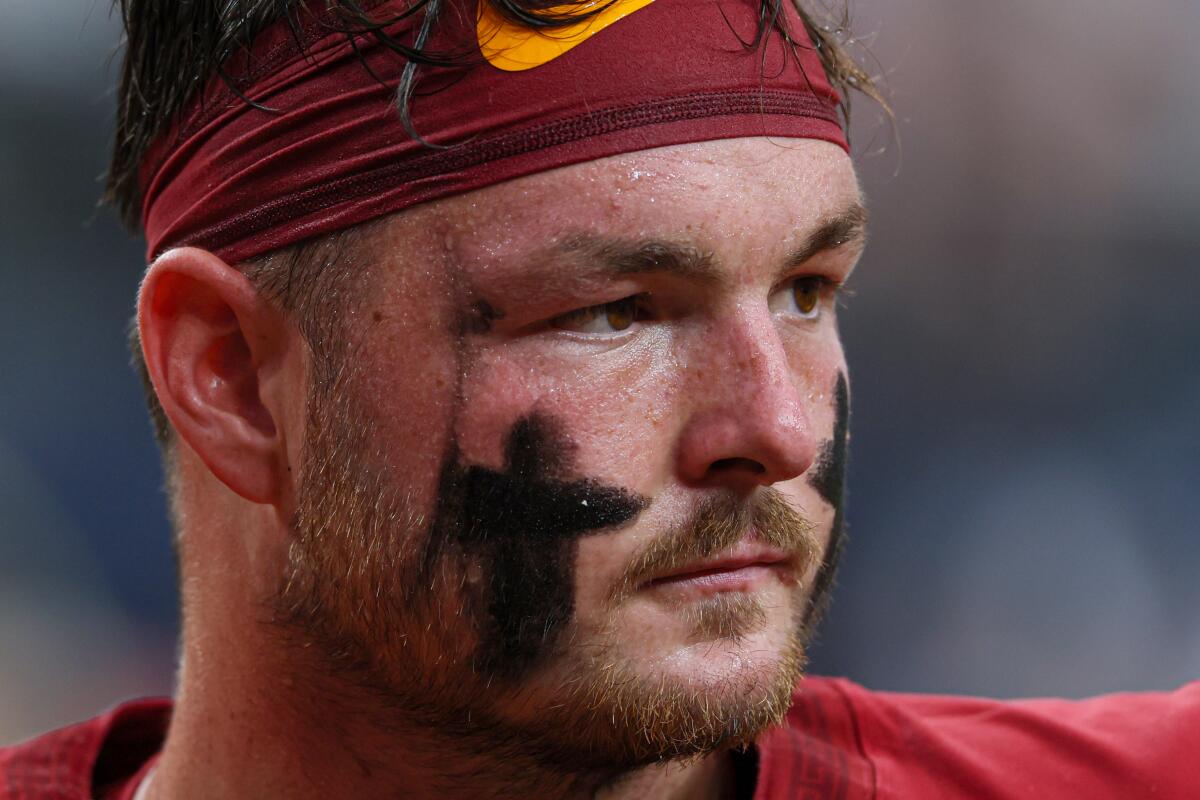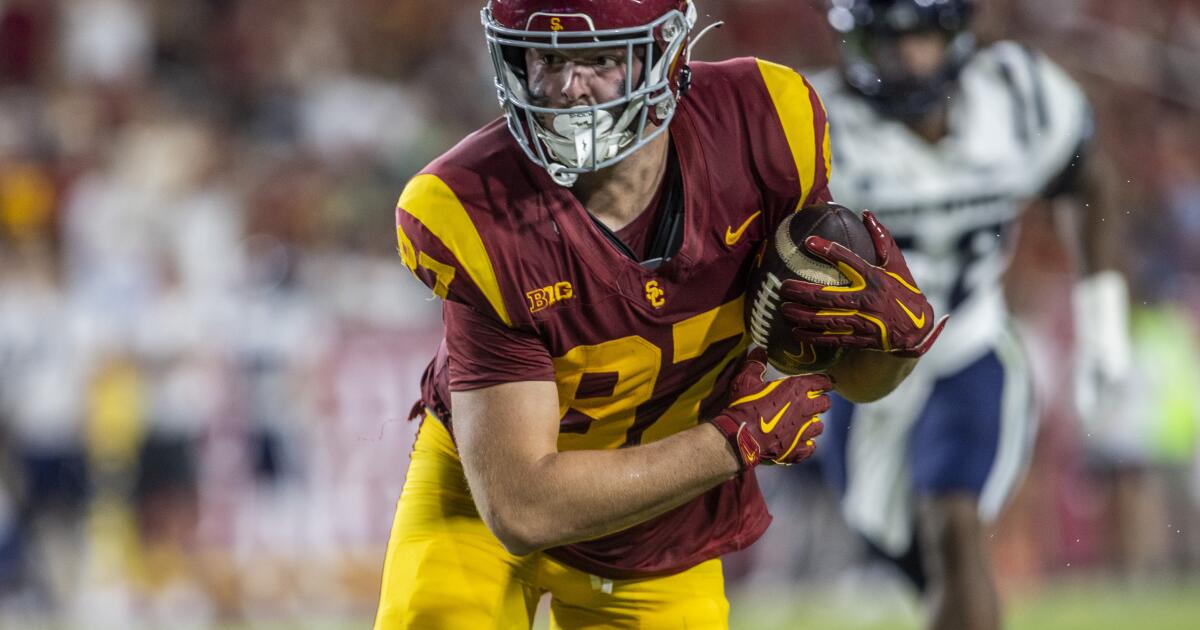When Lake McRee felt a pop in his right knee during bowl practice last December, the USC tight end didn’t think much of it at first. He finished the play, then lined up for another. Even ran a route. McRee may have kept going still, if a coach had not pulled him aside and told him something looked strange in his stride.
The diagnosis, McRee said, was “devastating.” A torn anterior cruciate ligament, his second in just over four years.
The timing was especially cruel. Not only would he miss the Holiday Bowl, which was shaping up to be a breakout moment. Considering when the tear occurred, it wasn’t clear, at the time, if McRee would be back for the start of USC’s 2024 campaign.
Beyond that, it was a major blow to the trajectory of the Trojans’ tight end room. Any hope that the position would suddenly play a major role in USC’s offense this season seemed to be put to rest with the injury.
But eight months later, McRee was miraculously back to full speed. And two games into this season, his fourth at USC, no pass catcher has had a bigger impact on the Trojans’ offense than the redshirt junior tight end, who leads the team in both receptions (nine) and receiving yards (137) and ranks eighth in the nation in both categories among tight ends.
“Having Lake back fully healthy has been awesome,” quarterback Miller Moss said. “I have a lot of faith and trust in him, and I think he’s delivered in a way that I expected and the offense expected him to.”

USC tight end Lake McRee warms up before a win over LSU at Allegiant Stadium in Las Vegas on Sept. 1.
(Robert Gauthier/Los Angeles Times)
The expectation, since Lincoln Riley arrived at USC, had been that tight ends would eventually occupy a bigger role in the Trojans offense, like they had in Oklahoma. But that potential had yet to come to fruition at the position. Tight ends accounted for 3% of USC’s passing offense in 2022, then just 5% in 2023, as Caleb Williams relied far more on buying time and hitting his speedy receivers down the field.
That identity appears to be shifting significantly with Moss at quarterback. Moss has gotten rid of the ball a full second faster on average than Williams, while more frequently working the middle of the field on short and intermediate routes, where a sure-handed, big-bodied pass catcher can especially come in handy.
The redshirt quarterback has already targeted tight ends 15 times through two games, nearly halfway to the total targets tight ends saw last season.
Knowing Moss as well as he does, McRee expected that might be the case this season. The thought was in the back of his head as he went through rehabilitation treatment multiple times per day during the spring and summer, pushing his way through a recovery process that he said could be “demoralizing.”
“If I got back in time for the season, I knew me and Miller had a good connection,” McRee said. “He likes a lot of tight end stuff in the offense.”
Moss, who considers McRee a close friend, smiled at the suggestion. “I don’t know who told Lake that,” he joked.
But against Utah State, those preferences proved to be a critical part of Riley’s game plan, as USC worked far more with 12 personnel, which uses two tight ends, than usual. As a result, McRee played 10 more snaps than any other position player on USC’s offense, while young tight ends Kade Eldridge (34) and Walker Lyons (18) did their part and saw three targets each.
Others, like talented freshmen Joey Olsen or Walter Matthews, could work their way into the tight end rotation before the season is done.
“It’s a deeper room, probably a more talented room than we’ve had in the first couple years,” Riley said.
That’s a testament to McRee, who returned from serious injury to step into his biggest role yet at USC.
“It really speaks to who he is as a person and a player,” Moss said. “He’s a tough … kid — and a really good player.”

